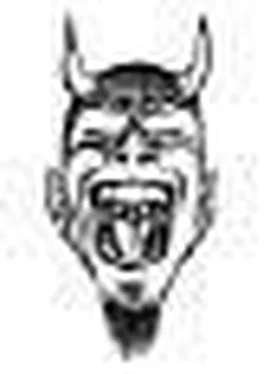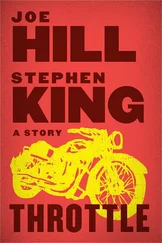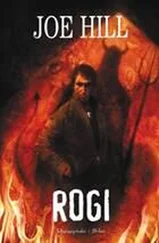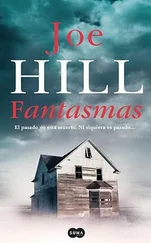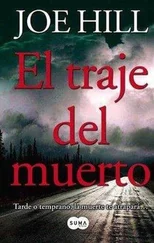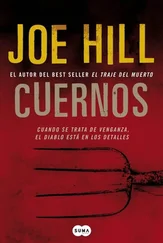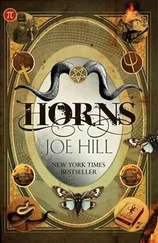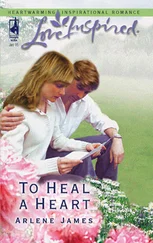The sound of it—the sound of the Ozarks, of gospel—gave him a little prickle of pleasure, which he felt along his forearms and across the back of his neck. A lot of his songs, when they started out, sounded like old music. They arrived on his doorstep, wandering orphans, the lost children of large and venerable musical families. They came to him in the form of Tin Pan Alley sing-alongs, honky-tonk blues, Dust Bowl plaints, lost Chuck Berry riffs. Jude dressed them in black and taught them to scream.
He wished he had his DAT recorder, wanted to get what he had down on tape. Instead he put the guitar aside once more, and scribbled the chords on the notepad, beneath his title. Then he took up the Les Paul and played the lick again, and again, curious to see where it would take him. Twenty minutes later there were spots of blood showing through the bandage around his left hand, and he had worked out the chorus, which built naturally from the initial hook, a steady, rising, thunderous chorus, a whisper to a shout: an act of violence against the beauty and sweetness of the melody that had come before.
“Who’s that by?” Georgia asked, leaning in through the bathroom door, knuckling the sleep out of her eyes.
“Me.”
“I like that one.”
“It’s okay. Sound even better if this thing was plugged in.”
Her soft black hair floated around her head, had a swirled, airy look to it, and the shadows under her eyes drew his attention to how large they were. She smiled drowsily down at him. He smiled back.
“Jude,” she said, in a tone of almost unbearable, erotic tenderness.
“Yeah?”
“You think you could get your ass out of the bathroom, so I could pee?”
When she shut the door, he dropped his guitar case on the bed and stood in the dimness of the room, listening to the muffled sound of the world beyond the drawn shades: the drone of traffic on the highway, a car door slamming, a vacuum cleaner humming in the room directly above. It came to him then that the ghost was gone.
Ever since the suit had arrived at his house in its black heart-shaped box, he had sensed the dead man lingering close to him. Even when Jude couldn’t see him, he was conscious of his presence, felt it almost as a barometric weight, a kind of pressure and electricity in the air, such as precedes a thunderstorm. He had existed in that atmosphere of dreadful waiting for days, a continuous crackle of tension that made it difficult to taste his food or find his way into sleep. Now, though, it had lifted. He had somehow forgotten the ghost while he’d been writing the new song—and the ghost had somehow forgotten him, or at least not been able to intrude into Jude’s thoughts, into Jude’s surroundings.
He walked Angus, took his time. Jude was in short sleeves and jeans, and the sun felt good on the back of his neck. The smell of the morning—the pall of exhaust over I-95, the swamp lilies in the brush, the hot tarmac—got his blood going, made him want to be on the road, to be driving somewhere, anywhere. He felt good: an unfamiliar sensation. Maybe he was randy, thought about the pleasant tousle of Georgia’s hair and her sleep-puffy eyes and lithe white legs. He was hungry, wanted eggs, a chicken-fried steak. Angus chased a groundhog into waist-high grass, then stood at the edge of the trees, yapping happily at it. Jude went back to give Bon a turn to stretch her legs and heard the shower.
He let himself in the bathroom. The room was steamy, the air hot and close. He undressed, slipped in around the curtain, and climbed into the tub.
Georgia jumped when his knuckles brushed her back, twisted her head to look at him over her shoulder. She had a black butterfly tattooed on her left shoulder and a black heart on her hip. She turned toward him, and he put his hand over the heart.
She pressed her damp, springy body against his, and they kissed. He leaned into her, over her, and to balance herself, Georgia put her right hand against the wall—then inhaled, a sharp, thin sound of pain, and pulled the hand back as if she had burned it.
Georgia tried to lower her hand to her side, but he caught her wrist and lifted it. The thumb was inflamed and red, and when he touched it lightly, he could feel the sick heat trapped inside it. The palm, around the ball of the thumb, was also reddened and swollen. On the inside of the thumb was the white sore, glittering with fresh pus.
“What are we going to do about this thing?” he asked.
“It’s fine. I’m putting antiseptic cream on it.”
“This isn’t fine. We ought to run you to the emergency room.”
“I’m not going to sit in some emergency room for three hours to have someone look at the place I poked myself with a pin.”
“You don’t know what stuck you. Don’t forget what you were handling when this happened to you.”
“I haven’t forgotten. I just don’t believe that any doctor is going to make it better. Not really.”
“You think it’s going to get better on its own?”
“I think it’ll be all right—if we make the dead man go away. If we get him off our backs, I think we’ll both be all right,” she said. “Whatever’s wrong with my hand, it’s part of this whole thing. But you know that, don’t you?”
He didn’t know anything, but he had notions, and he was not happy to hear they matched her own. He bowed his head, considering, wiped at the spray on his face. At last he said, “When Anna was at her worst, she’d poke herself in the thumb with a needle. To clear her head, she told me. I don’t know. Maybe it’s nothing. It just makes me uneasy, you getting stuck like she used to stick herself.”
“Well. It doesn’t worry me. Actually, that almost makes me feel better about it.” Her good hand moved across his chest as she spoke, her fingers exploring a landscape of muscle beginning to lose definition and skin going slack with age, and all of it overgrown with a mat of curling silver hairs.
“It does?”
“Sure. It’s something else her and I got in common. Besides you. I never met her, and I don’t hardly know anything about her, but I feel connected to her somehow. I’m not afraid of that, you know.”
“I’m glad it’s not bothering you. I wish I could say the same. Speaking for myself, I don’t much like thinking about it.”
“So don’t,” she said, leaning into him and pushing her tongue into his mouth to shut him up.
24
Jude took Bon for her overdue walkwhile Georgia busied herself in the bathroom, dressing and rebandaging her hand and putting in her studs. He knew she might be occupied for twenty minutes, so he stopped by the car and pulled her laptop out of the trunk. Georgia didn’t even know they had it with them. He’d packed it automatically, without thinking, because Georgia took it with her wherever she went and used it to stay in touch with a gaggle of geographically far-flung friends by way of e-mail and instant message. And she dribbled away countless hours browsing message boards, blogs, concert info, and vampire porn (which would’ve been hilarious if it weren’t so depressing). But once they were on the road, Jude had forgotten they had the laptop with them, and Georgia had never asked about it, so it had spent the night in the trunk.
Jude didn’t bring his own computer—he didn’t have one. Danny had handled his e-mail and all the rest of his online obligations. Jude was aware that he belonged to an increasingly small segment of the society, those who could not quite fathom the allure of the digital age. Jude did not want to be wired. He had spent four years wired on coke, a period of time in which everything seemed hyperaccelerated, as in one of those time-lapse movies, where a whole day and night pass in just a few seconds, traffic reduced to lurid streaks of light, people transformed into blurred mannequins rushing jerkily here and there. Those four years now felt more like four bad, crazy, sleepless days to him—days that had begun with a New Year’s Eve hangover and ended at crowded, smoky Christmas parties where he found himself surrounded by strangers trying to touch him and shrieking with inhuman laughter. He did not ever want to be wired again.
Читать дальше
